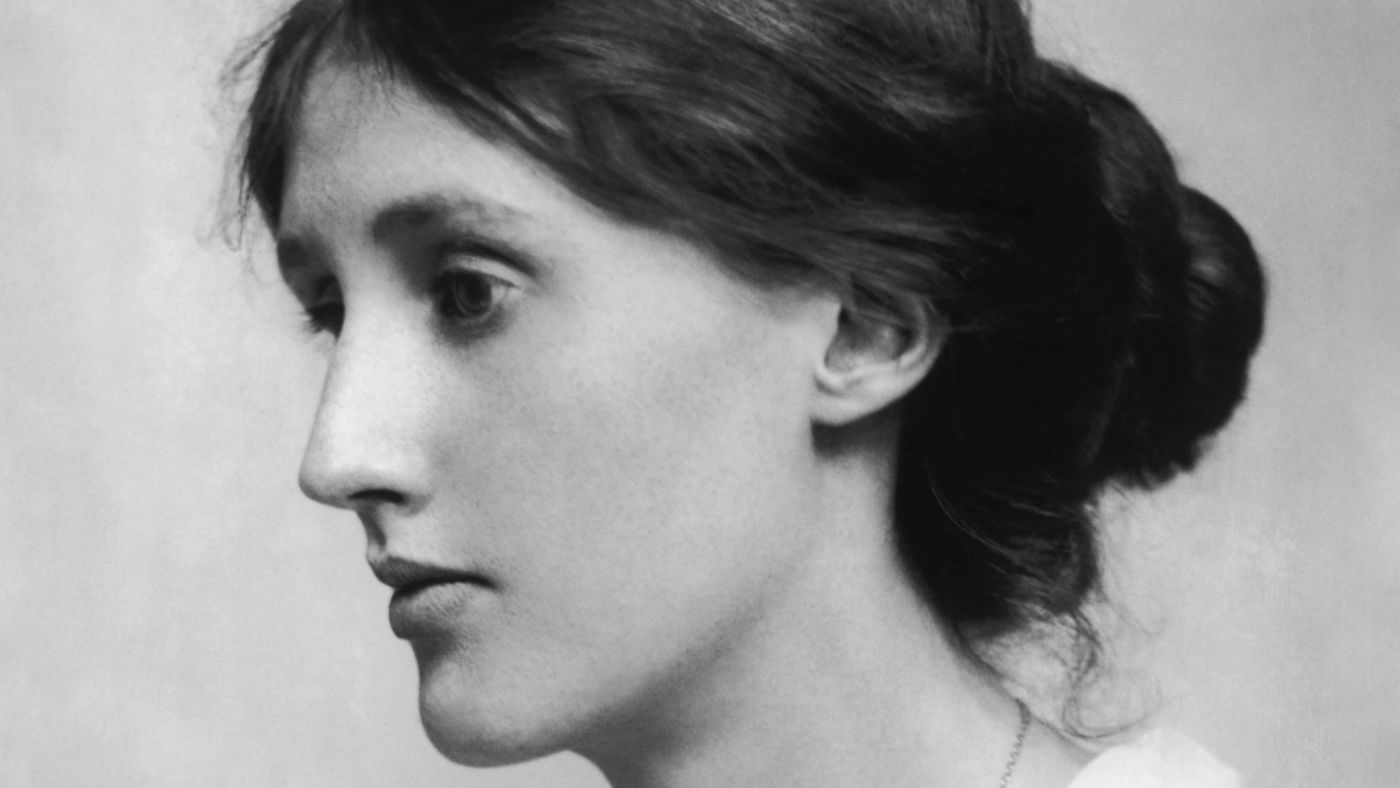Virginia Woolf: Google Doodle marks writer’s 136th birthday
Mrs Dalloway and To The Lighthouse author credited with rejuvenating the English novel

A free daily email with the biggest news stories of the day – and the best features from TheWeek.com
You are now subscribed
Your newsletter sign-up was successful
Virginia Woolf has been commemorated with a Google Doodle on what would be her 136th birthday.
Woolf’s bold and imaginative style is credited with changing English fiction, says The Independent, “pushing it beyond the tried-and-tested narrative structures of the Victorian era into fresh and experimental new territory”.
The woman who would go on to be Virginia Woolf was born Adeline Virginia Stephen in 1882 to a well-to-do London family headed by her father, author and historian Sir Leslie Stephen.
The Week
Escape your echo chamber. Get the facts behind the news, plus analysis from multiple perspectives.

Sign up for The Week's Free Newsletters
From our morning news briefing to a weekly Good News Newsletter, get the best of The Week delivered directly to your inbox.
From our morning news briefing to a weekly Good News Newsletter, get the best of The Week delivered directly to your inbox.
Along with her three siblings and four half-siblings, the young Woolf grew up in an intellectual milieu. She was tutored at home, but unlike her two brothers, did not attend university - an omission she would later lament as the result of prejudice against women in higher education.
The death of her mother and her beloved older half-sister while Woolf was still a teeenager provoked the first of a series of nervous breakdowns which would go on to inform her psychologically acute and emotionally nuanced work.
In 1912, she married Leonard Woolf, a former civil servant turned writer. Despite evidence of her bisexuality, the marriage was a happy one.
Both became members of the Bloomsbury Group, a network of prominent intellectuals, writers and artists centred around the titular area of London.
A free daily email with the biggest news stories of the day – and the best features from TheWeek.com
Other members included the economist John Maynard Keynes, biographer Lytton Strachey and Room With a View author E. M. Forster.
Over a prodigious literary career, Woolf penned a wide variety of essays, criticism and novels, the most famous of which include To The Lighthouse and Mrs Dalloway. After struggling with depression and mood swings for decades, in 1941, at the age of 51, she drowned herself in a river near her home in Lewes, East Sussex.
She is remembered for pioneering the stream-of-consciousness style, whereby thoughts and feelings are expressed on the page seemingly spontaneously, as they are in the mind. Her fiction “elevated sometimes mundane settings while examining the complex interior lives of her characters,” says CNET.
In her famous 1929 essay, A Room of One’s Own, Woolf wrote about women’s erasure from literary and historical narratives, and stressed the need for women to have literal and metaphorical space to voice their own thoughts and experiences.
The essay, with its famous observation that “'A woman must have money and a room of her own if she is to write fiction,” remains one of the foundation texts of modern feminism.
-
 The environmental cost of GLP-1s
The environmental cost of GLP-1sThe explainer Producing the drugs is a dirty process
-
 Greenland’s capital becomes ground zero for the country’s diplomatic straits
Greenland’s capital becomes ground zero for the country’s diplomatic straitsIN THE SPOTLIGHT A flurry of new consular activity in Nuuk shows how important Greenland has become to Europeans’ anxiety about American imperialism
-
 ‘This is something that happens all too often’
‘This is something that happens all too often’Instant Opinion Opinion, comment and editorials of the day
-
 Epstein files topple law CEO, roil UK government
Epstein files topple law CEO, roil UK governmentSpeed Read Peter Mandelson, Britain’s former ambassador to the US, is caught up in the scandal
-
 Iran and US prepare to meet after skirmishes
Iran and US prepare to meet after skirmishesSpeed Read The incident comes amid heightened tensions in the Middle East
-
 Israel retrieves final hostage’s body from Gaza
Israel retrieves final hostage’s body from GazaSpeed Read The 24-year-old police officer was killed during the initial Hamas attack
-
 China’s Xi targets top general in growing purge
China’s Xi targets top general in growing purgeSpeed Read Zhang Youxia is being investigated over ‘grave violations’ of the law
-
 Panama and Canada are negotiating over a crucial copper mine
Panama and Canada are negotiating over a crucial copper mineIn the Spotlight Panama is set to make a final decision on the mine this summer
-
 Why Greenland’s natural resources are nearly impossible to mine
Why Greenland’s natural resources are nearly impossible to mineThe Explainer The country’s natural landscape makes the task extremely difficult
-
 Iran cuts internet as protests escalate
Iran cuts internet as protests escalateSpeed Reada Government buildings across the country have been set on fire
-
 US nabs ‘shadow’ tanker claimed by Russia
US nabs ‘shadow’ tanker claimed by RussiaSpeed Read The ship was one of two vessels seized by the US military